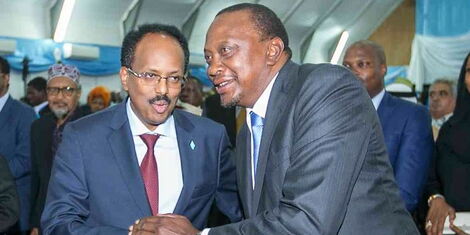
A new row of disputes has opened in the strained Kenya-Somali border relations as Kenya is now accusing Somali of shortchanging normal procedures by forwarding the border row to international authorities without first considering regional resolutions.
Kenyan authorities argue that Somalia ought to have engaged the East Africa Community first, then move to the African Union if the dispute escalated, instead of filing the case at the International Court of Justice (ICJ) in The Hague, Netherlands.
Kenya’s position is that Somalia did not exhaust all dispute resolution mechanisms before going to The Hague based court which Kenya accuses of bias and links to the war-scarred country.

“Why did Somalia not seek recourse at the African Union under the African Union Convention on Cross Border Cooperation? Was the Intergovernmental Authority on Development (Igad) not an option for Somalia to present its case? What of the East African Community?” Kenyan statements read according to a Standard report.
“Somalia played the race card by opting for a Eurocentric legal system as opposed mediation and conciliation as practiced within the African traditional methods of dispute resolution. What then would be the consequences of the ICJ favoring Somalia against Kenya in the maritime dispute?” states the writers.
President Uhuru Kenyatta early this month met Somali’s President Abdullahi Mohamed Farmajo to try and resolve the dispute. This closed-door session was mediated by Ethiopian Prime Minister Abiy Ahmed.

The pair “discussed extensively the matter. As an outcome, both agreed to work towards peace and to take measures in addressing particular issues that escalated the tensions,” said Ahmed on his Twitter account.
While criticising Somalia for jumping the gun to file a case in ‘a Eurocentric court,’ Kenya argues that the United Nations Convention on the Law of the Sea (UNCLOS), which governs maritime dispute settlement mechanism, demands that countries should first consider general, then regional or bilateral agreements with each other.